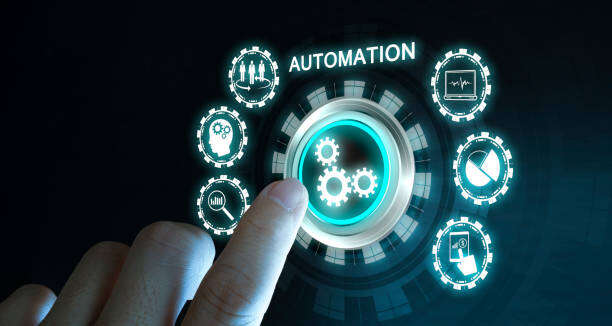Industrial automation is reshaping the way industries operate by integrating advanced technologies to streamline production, improve efficiency, and enhance overall operational control. This approach utilizes robotic systems, artificial intelligence (AI), programmable logic controllers (PLCs), and other innovative tools to minimize human intervention while maximizing output and precision.
Industrial automation has evolved significantly over the decades, transitioning from basic mechanical automation to highly sophisticated digital and autonomous systems. Today, industries across various sectors, including automotive, pharmaceuticals, electronics, and food production, leverage automation to maintain competitiveness and achieve higher levels of precision and reliability.
How Industrial Automation Enhances Efficiency and Productivity in Large-Scale Manufacturing
One of the primary advantages of industrial automation is its ability to significantly enhance efficiency in large-scale manufacturing. Automated systems can operate continuously without fatigue, ensuring consistent production output with minimal downtime.
Additionally, automated equipment can perform repetitive tasks with high accuracy, reducing errors and material waste. In industries that require precision, such as electronics and medical device manufacturing, automation ensures that every product meets stringent quality standards. The implementation of commercial automation systems allows businesses to optimize workflow, reduce cycle times, and increase overall throughput.
The Role of Robotics and Artificial Intelligence in Industrial Automation Systems
The integration of robotics and AI is a game-changer for industrial automation. Robotics enhances efficiency by executing complex tasks with high-speed precision, replacing manual labor in hazardous and high-risk environments. Collaborative robots, or “cobots,” work alongside human operators to improve safety and productivity in various applications.
Artificial intelligence further amplifies the capabilities of automation by enabling real-time data analysis, predictive maintenance, and adaptive control systems. AI-powered automation systems can identify patterns, optimize production processes, and proactively address potential failures before they occur, thereby reducing downtime and maintenance costs.
The Importance of Industrial Automation in Achieving Sustainable and Eco-Friendly Production
Sustainability has become a crucial focus for modern industries, and industrial automation plays a pivotal role in achieving eco-friendly production. Automated systems optimize energy consumption, reduce waste, and enhance resource utilization, leading to more sustainable operations.
Smart sensors and IoT-enabled devices help monitor energy usage, detect inefficiencies, and adjust processes to minimize environmental impact. Moreover, by reducing human dependency on hazardous tasks, automation improves workplace safety and contributes to overall sustainability goals.
Challenges and Future Trends in Industrial Automation: What Lies Ahead
Despite its numerous benefits, industrial automation presents challenges, including high initial investment, system integration complexities, and the need for skilled professionals to operate and maintain automated equipment. However, advancements in AI, machine learning, and cloud computing are continuously addressing these challenges, making automation more accessible and cost-effective.
Future trends in industrial automation include the rise of smart factories, where interconnected machines communicate seamlessly, optimizing production processes in real time. The adoption of edge computing, augmented reality (AR) for remote maintenance, and digital twins for process simulation will further enhance automation capabilities.
Conclusion: Why Industrial Automation is the Key to the Future of Manufacturing and Commercial Automation Systems
Industrial automation is revolutionizing manufacturing and production by improving efficiency, reducing costs, and enhancing product quality. The integration of commercial automation systems allows industries to achieve higher levels of precision, safety, and sustainability while maintaining competitiveness in a rapidly evolving market.
As technology continues to advance, industrial automation will become even more sophisticated, paving the way for fully autonomous and intelligent manufacturing ecosystems. Companies that embrace automation today will be better positioned to thrive in the future, ensuring long-term success and operational excellence.

